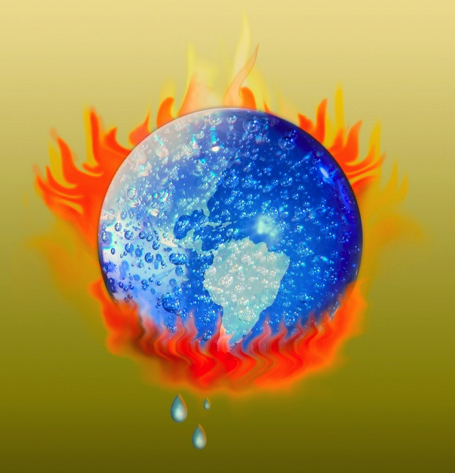The cover story of the April issue of the Atlantic Monthly, “Global Warming: Who Loses-and Who Wins?,” provides a detailed, and troubling, account of the potential beneficiaries of climate change – here’s a hint, they aren’t the poor countries. In fact, it appears as though the rich will get richer, and the poor poorer:
…an articifical greenhouse effect could harm nations that are already hard pressed and benefit nations that are already affluent. If Alaska turned temperate, it would drive conservationists to distrcation, but it would also open for development an area more than twice the size of Texas. Rising world temperatures might throw Indonesia, Mexico, Nigeria, and other low-latitude nations into generations of misery, while causing Canada, Greenland, and Scandinavia to experience a rip-roarin’ economic boom. Many Greenlanders are already cheering the retreat of glaciers, since this melting stands to make their vast island far more valuable.
And Russia! For generations poets have bemoaned this realm as cursed by enormous, foreboding, harsh Siberia. What if the region in question was instead enormous, temperate, inviting Siberia? Climate change could place Russia in possession of the largest new region of pristine, exploitable land since the sailing ships of Europe first spied the shores of what would be called north America. The snows of Siberia cover soils that have never been depleted by controlled agriculture…
Historically priveleged northern societies might not decline geopolitically, as many commentators have predicted. Indeed, the great age of northern power may lie ahead, if Earth’s very climate is on the verge of conferring boons to that part of the world…By the middle of the 21st century, a new global balance of power may emerge in which Russia and America are once again the world’s paired superpowers – only this time during a Warming War instead of a Cold War.
But, it won’t be all good news. War is among the potential negative consequences of a warming Earth:
Shifts in the relative values of places and resources have often led to war, and it is all too imaginable that climate change will cause nations to envy each other’s territory…Suppose climate change made Brazil less habitable, while bringing an agreeable climate to the vast and fertile Argentinean pampas to Brazil’s south. Sao Paulo is already one of the world’s largest cities. Would a desperate, overheated Brazil of the year 2037 – its population exploding – hesitate to attack Argentina for cool, inviting land? …What if the climate warms, rendering much of Pakistan unbearable to its citizens? (Temperatures of 100-plus degrees are already common in the Punjab) Afghanistan’s high plateaus, dry and rocky as they are, might start looking pleasingly temperate as Pakistan warms, and the Afghans might see yet another army headed their way.
A warming climate could cause other landgrabs on a national scale. Today Greenland is a largely self-governing territory of Denmark that the world leaves in peace because no nation covets its shivering expanse. Should the Earth warm, Copenhagen might assert greater jurisdiction over Greenland, or stronger governments might scheme to seize this dwarf continent, which is roughly three times the size of Texas. Today Anatarctica is under international administration, and this arrangement is generally accepted because the continent has no value beyond scientific research. If the world warmed for a long time – and it would likely take centuries for the Antarctic ice sheet to melt completely – international jockeying to seize or conquer Antarctica might become intense. Some geologists believe large oil deposits are under the Antarctic crust…
…Assuming arctic ice continues to melt, the world’s cargo vessels may begin sailing due north to shave thousands of miles off their trips…If arctic polar ice disappears and container vessels course the North Pole seas, shipping costs may decline – to the benefit of consumers. Asian manufacturers, especially, should see their costs of shipping to the United States and the European Union fall. At the same time, heavily trafficked souther shipping routes linking East Asia to Europe and to America’s East Coast could see less traffic, and port cities along that route – such as Singapore – might decline.
Oh, and there may be oil under the arctic waters. Who would own that oil? The United States, Russia, Canada, Norway, and Denmark already assert legally complex claims to parts of the North Pole seas – including portions that other nations consider open waters not subject to sovereign control. Today it seems absurd to imagine the governments of the world fighting over the North Pole seas, but in the past many causes of battle have seemed absurd before artillery fire began. Canada is already conducting naval exercises in the arctic waters, and making no secrets of this.
Read the whole article at the link below:
